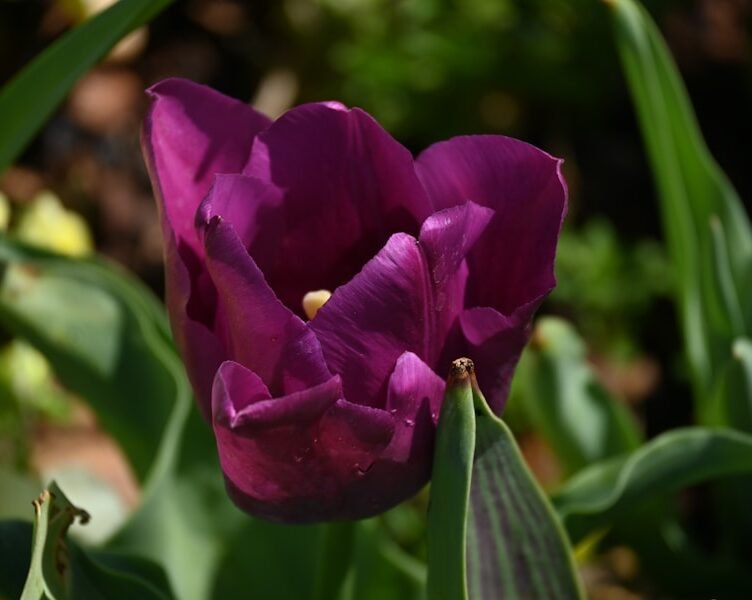For individuals who suffer from allergies, finding respite from symptoms can be an ongoing challenge. Fortunately, pet-friendly plants offer a natural and effective solution to reduce allergens in the home, providing a healthier environment for both humans and pets. These plants have the ability to purify the air by removing common allergens such as dust, mold, and pet dander, thereby creating a cleaner and more breathable indoor space.
Additionally, pet-friendly plants have been shown to reduce stress and anxiety, which can exacerbate allergy symptoms. The presence of greenery in the home has a calming effect on both humans and animals, promoting a sense of well-being and relaxation. By incorporating pet-friendly plants into your home, you can create a more comfortable and allergy-friendly living space for you and your pets.
Pet-friendly plants also offer the added benefit of enhancing your home decor with natural elements. With a diverse range of options available, you can easily find plants that complement your personal style and aesthetic preferences. Whether you prefer plants with lush foliage or delicate flowering varieties, there are pet-friendly options to suit every taste.
By bringing the outdoors into your home, you can create a more inviting and visually appealing space that promotes a sense of tranquility and harmony. Furthermore, pet-friendly plants can serve as a rewarding hobby, allowing you to nurture and care for living organisms while enjoying the benefits of improved air quality and allergy relief.
Key Takeaways
- Pet-friendly plants can help reduce allergies by improving indoor air quality and reducing common allergens in the home.
- Incorporating pet-friendly plants into your home decor can not only benefit allergy sufferers but also create a more inviting and natural environment.
- When choosing pet-friendly plants, consider the specific needs of your pets and the level of maintenance required for each plant.
- Some common allergens in plants can be avoided by choosing the right pet-friendly plants and maintaining a healthy indoor environment.
- The best pet-friendly plants for allergy-prone pets include options like spider plants, Boston ferns, and bamboo palms, which can help improve air quality and reduce allergens.
Top 5 Pet-Friendly Plants That Can Improve Indoor Air Quality
Air-Purifying Superstars
When it comes to choosing pet-friendly plants for allergy relief, there are several options that stand out for their air-purifying properties. The spider plant is a popular choice for its ability to remove toxins such as formaldehyde and xylene from the air, making it an excellent choice for allergy sufferers.
Top Picks for Clean Air
Another top pick is the Boston fern, which is known for its ability to add moisture to the air while filtering out pollutants. The peace lily is also a great option for improving indoor air quality, as it can remove common allergens such as mold spores and dust particles. For those looking for a low-maintenance option, the snake plant is an ideal choice, as it is highly effective at removing toxins from the air and requires minimal care.
Low-Maintenance and Effective
Lastly, the bamboo palm is a top performer in air purification, removing pollutants such as benzene and trichloroethylene while adding a touch of tropical flair to your home.
A Natural Solution for Allergy Relief
In addition to their air-purifying properties, these pet-friendly plants are also safe for pets, making them an ideal choice for allergy-prone households. With proper care and maintenance, these plants can thrive indoors, providing a natural and effective way to reduce allergens in the home. By incorporating these top pet-friendly plants into your living space, you can enjoy improved air quality and allergy relief while adding beauty and greenery to your home decor.
How to Choose the Right Pet-Friendly Plants for Your Home
When selecting pet-friendly plants for your home, it’s important to consider factors such as your living space, lighting conditions, and the specific needs of your pets. Before making a purchase, take the time to research different plant varieties and their care requirements to ensure that you choose the right options for your home. Consider factors such as the amount of natural light available in your space, as well as the humidity levels and temperature range, to determine which plants are best suited for your environment.
Additionally, take into account the specific needs of your pets, such as any allergies or sensitivities they may have to certain plants. It’s also important to consider the size and growth habits of pet-friendly plants when choosing the right options for your home. Some plants may require more space to thrive, while others may be better suited for smaller living spaces.
Consider the overall aesthetic of your home decor and choose plants that complement your personal style and design preferences. Whether you prefer hanging plants, potted varieties, or larger statement pieces, there are pet-friendly options to suit every taste and space. By taking the time to carefully select the right pet-friendly plants for your home, you can create a healthier and more inviting living environment for both you and your pets.
Tips for Incorporating Pet-Friendly Plants into Your Home Decor
| Plant Name | Benefits |
|---|---|
| Aloe Vera | Improves air quality and helps to soothe skin allergies |
| Spider Plant | Removes toxins from the air and is safe for pets |
| Boston Fern | Acts as a natural air humidifier and removes formaldehyde |
| Bamboo Palm | Filters out benzene and trichloroethylene from the air |
| Peace Lily | Removes mold spores and purifies the air |
Incorporating pet-friendly plants into your home decor is a great way to add natural elements and visual interest to your living space. When choosing plants for your home, consider factors such as color, texture, and size to create a cohesive and visually appealing look. Mix and match different plant varieties to add depth and dimension to your decor, incorporating a combination of leafy greens, flowering plants, and trailing vines for added visual interest.
Consider using plant stands, shelves, or hanging planters to display your pet-friendly plants in creative and eye-catching ways that complement your existing decor. Another tip for incorporating pet-friendly plants into your home decor is to consider the overall aesthetic of your space and choose plants that complement your design style. Whether you prefer a modern, minimalist look or a more bohemian and eclectic vibe, there are pet-friendly plant options to suit every taste.
Consider using plants as focal points or statement pieces in your decor, placing them in areas where they can make a visual impact and add a touch of natural beauty to your living space. By incorporating pet-friendly plants into your home decor in thoughtful and creative ways, you can create a more inviting and visually appealing environment that promotes health and well-being for both you and your pets.
Common Allergens in Plants and How to Avoid Them
While pet-friendly plants offer numerous benefits for allergy sufferers, it’s important to be aware of common allergens that can be present in certain plant varieties. Pollen is one of the most common allergens found in plants, so it’s important to choose low-pollen varieties if you or your pets are sensitive to pollen. Additionally, some plants may produce volatile organic compounds (VOCs) that can exacerbate allergy symptoms, so it’s important to research plant varieties that are known for their low VOC emissions.
In addition to pollen and VOCs, mold spores can also be a common allergen found in indoor plants. To avoid mold issues, be sure to provide proper air circulation and avoid overwatering your plants. It’s also important to regularly clean and dust the leaves of your pet-friendly plants to remove any potential allergens that may have accumulated.
By being mindful of common allergens in plants and taking steps to avoid them, you can enjoy the benefits of pet-friendly plants without exacerbating allergy symptoms for you or your pets.
The Best Pet-Friendly Plants for Allergy-Prone Pets
Safe and Non-Toxic Plant Options
For pet owners with allergy-prone pets, selecting the right plants is crucial for creating a healthy indoor environment. When choosing plants for homes with allergy-prone pets, it’s essential to opt for non-toxic and safe options for animals.
Top Pet-Friendly Plant Picks
Some top pet-friendly plant options for allergy-prone pets include the spider plant, known for its air-purifying properties and non-toxic nature. The Boston fern is another great option, improving indoor air quality while being safe for pets. The African violet is a top pick, adding a pop of color to your home decor while being non-toxic.
Low-Maintenance and Effective Options
For those looking for low-maintenance options, the parlor palm is an excellent choice, safe for pets and effective at removing toxins from the air. The friendship plant is another great option, being non-toxic and easy to care for. By choosing pet-friendly plants, you can create a healthier indoor environment while adding beauty and greenery to your home decor.
Maintaining a Healthy Indoor Environment with Pet-Friendly Plants
Once you’ve chosen the right pet-friendly plants for your home, it’s important to maintain a healthy indoor environment by providing proper care and maintenance for your greenery. Regular watering, pruning, and cleaning are essential for keeping your pet-friendly plants healthy and thriving. Be sure to research the specific care requirements of each plant variety you choose to ensure that they receive the proper amount of light, water, and nutrients they need to thrive.
In addition to regular care and maintenance, it’s important to monitor the health of your pet-friendly plants and address any issues that may arise promptly. Keep an eye out for signs of pests or disease, such as yellowing leaves or wilting foliage, and take steps to address these issues before they become more serious. By providing proper care and maintenance for your pet-friendly plants, you can create a healthy indoor environment that promotes well-being for both you and your pets.
In conclusion, pet-friendly plants offer numerous benefits for allergy sufferers by improving indoor air quality, reducing stress, and adding natural beauty to home decor. By choosing the right pet-friendly plants for your home and providing proper care and maintenance, you can create a healthier living environment that promotes well-being for both you and your furry friends. With careful consideration of plant varieties and their specific care requirements, you can enjoy the benefits of pet-friendly plants while minimizing allergens in your home.
Whether you’re looking to improve indoor air quality or simply add a touch of greenery to your living space, incorporating pet-friendly plants into your home decor is a natural and effective way to create a healthier and more inviting environment for all.
FAQs
What are pet-friendly plants?
Pet-friendly plants are indoor or outdoor plants that are safe for pets to be around. These plants are non-toxic to cats and dogs and are a great addition to any pet-friendly home.
How can plants help reduce allergies for pet owners?
Certain plants have the ability to purify the air by removing common allergens such as dust, mold, and pollen. This can help reduce allergy symptoms for pet owners and create a healthier indoor environment.
What are some examples of pet-friendly plants that can help reduce allergies?
Some examples of pet-friendly plants that can help reduce allergies include spider plants, Boston ferns, bamboo palms, and peace lilies. These plants are known for their air-purifying properties and are safe for pets to be around.
Are there any plants that are harmful to pets and should be avoided?
Yes, there are many plants that are toxic to pets and should be avoided in a pet-friendly home. Some common toxic plants include lilies, aloe vera, and philodendron. It’s important to research and choose plants that are safe for pets.
How can pet owners ensure the safety of their pets around plants?
To ensure the safety of pets around plants, pet owners should research and choose pet-friendly plants that are non-toxic. It’s also important to place plants out of reach of pets and to monitor their behavior around plants to prevent any potential ingestion.


